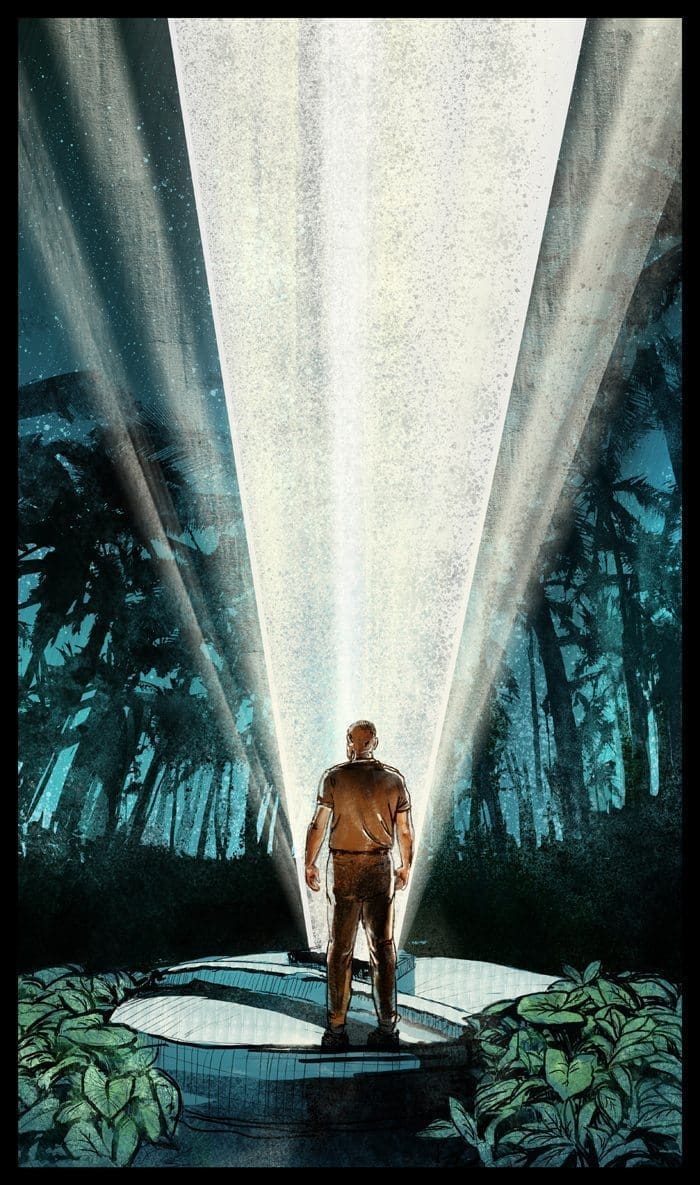J.J. Abrams has built a career on the mystery box. He uses them to power his stories and drive consumers to marketing campaigns rather than away. If you haven’t seen him detail the importance of the mystery box on TED, stop wasting your time and play the video:
Anyway, the idea goes something like this: Human beings have an innate need to anticipate and speculate on the concealed. It’s something Hitchcock knew and something Spielberg (bad) lucked into in 1975. It’s all about what the audience doesn’t know. If given the right clues, which can sometimes be as simple as the knowledge, that something is in or out there, our brains won’t let us off the hook until we see it. The funny thing is that once the hatch is open, we don’t care nearly as much. The game truly is better than winning.
The automatic view of movie mystery boxes probably pulls you toward things like a monster shark beneath the surface or a grinning ghost in the closet. Often, it is those boxes, painted deep black with razor sharp edges we find in our stories. More valuable, arguably, is the mystery that hasn’t whispered anything to us at all. It’s the mystery box that might hold something horrible and might be something amazing or just plain cool.

Nowhere, possibly in all of fiction, is this on display more than J.J. Abram’s mid 2000’s series LOST. A tapestry is created that leaves you speculating on every new person place or thing with frenzied anticipation. Is it a nightmarish new conflict? Is it a display of supernatural power? Is it a rug-pull that changes the whole game? Underlining every question is this — Is it hope? No matter what’s in the mystery box, yes, John Locke, it is hope.
J.J.’s mystery box is a familiar beast to us all. It’s the reason we stare at bright little machines all day rather than put up with the reality in front of us. If I’m looking at you face-to-face, your secrets are all revealed. If you had information, major revelation or not, you’d have given it to me. But if there’s a little red circle with numbers in it, I have hope. It only takes a tiny little 1 to show me something amazing or cool. Maybe I’ll get satisfaction that you though something I wrote was funny, or noticed how cool I was for posting a picture of a giant peach that looks like a butt. Maybe it’ll be that email from my long lost Uncle Ludwig who’s letting me know about the fortune he’s leaving me in his will. If nothing else, there will be the relief that I didn’t get a message about some tragedy or an unexpected bill.
Is the social media mystery box a 100% good thing? Probably not. Are we going to learn to stop ignoring out friends so we can compulsively check to see if there’s news from our friends? Probably not. The thing is that there’s bad habits to be found here, just like there was when TV was invented and just like there was when jokes were invented, but there’s certainly nothing wrong with hope. Which is exactly why I wrote this.